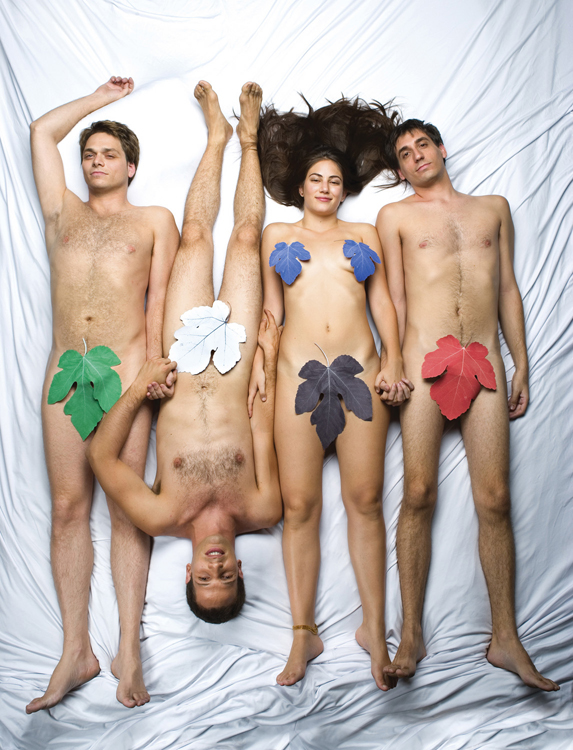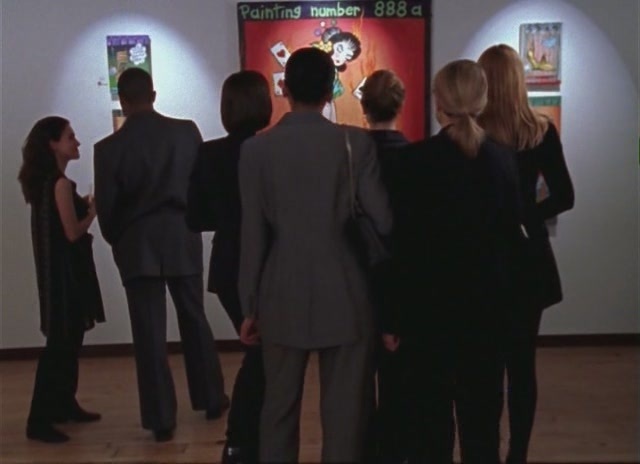 After watching every episode from the Sex and the City series, and both the movies I have now come to realize that audiences ARE reading the text in the way that it is asking to be read; at the same time, audiences ARE NOT reading the text in the way it is asking to be read which is a good thing.
After watching every episode from the Sex and the City series, and both the movies I have now come to realize that audiences ARE reading the text in the way that it is asking to be read; at the same time, audiences ARE NOT reading the text in the way it is asking to be read which is a good thing. While watching various episodes, I caught myself a number of times falling into the trance of the amazing shoes, clothes, and “girly” things that are presented, and sometimes failed to realize all the anti-feminist aspects of the show. On the other hand, I also regularly clued into how women were being negatively represented in some instances where that was not necessarily the producer’s intent. There are so many different aspects of Sex and the City that sometimes it is easier to watch the show the way the producers want us to. Sometimes it can be comforting to let lose and live in these girls shoes if only for a while, but if you actually listen to what is going on in most episodes there are a lot of underlying issues.
 Some people watch this show, fall in love with the characters and their lives and want to be just like them. Some people also watch the show and realize the problems with these women’s lives and understand that women deserve to be treated better than they often are. Charlotte is portrayed as a stereotypical woman who is not independent, and only wants to be a good housewife and live the “expected” life that a woman should. The producers want us to see how lucky she is for finding love, a family, and ultimately “success”. I have to admit that I often watched the show thinking wow, she has it all with her beautiful home, designer clothes, and family. I had to remind myself at times that she represents almost everything that feminist movements are against. Charlotte definitely portrays herself in a female role that is frowned upon in today’s society.
Some people watch this show, fall in love with the characters and their lives and want to be just like them. Some people also watch the show and realize the problems with these women’s lives and understand that women deserve to be treated better than they often are. Charlotte is portrayed as a stereotypical woman who is not independent, and only wants to be a good housewife and live the “expected” life that a woman should. The producers want us to see how lucky she is for finding love, a family, and ultimately “success”. I have to admit that I often watched the show thinking wow, she has it all with her beautiful home, designer clothes, and family. I had to remind myself at times that she represents almost everything that feminist movements are against. Charlotte definitely portrays herself in a female role that is frowned upon in today’s society. Throughout the course of this show women are often treated as lesser than a man, dominated by a man, and at the beck and call of a man, as exemplified through Carrie and Big’s relationship. At the same time, the female characters in this show can at times be very independent, career driven, ambitious, and confident. Unfortunately, it is almost as if the two opposite roles that women represent cancel each other out. Because women are represented as both stereotypical and non-stereotypical it is easy to watch the show and not think of the consequences that its ideas are creating.
Not all women’s lives revolve around finding a man, fitting into the perfect pair of shoes or getting married, however this show makes women’s values seem this way. Producers of Sex and the City want their viewers to watch the show for the fashion, and the fantasy of living an upper class New York lifestyle. They also want viewers to realize all the potential the show has for influencing women to be career driven, successful, and independent. Although many people do watch the show for these aspects, I also think that viewers also read into the deeper meanings that surround the themes that are presented.
RED = How the show is asking to be watched
PURPLE = Additional things viewers are seeing when watching
RED = How the show is asking to be watched
PURPLE = Additional things viewers are seeing when watching

























